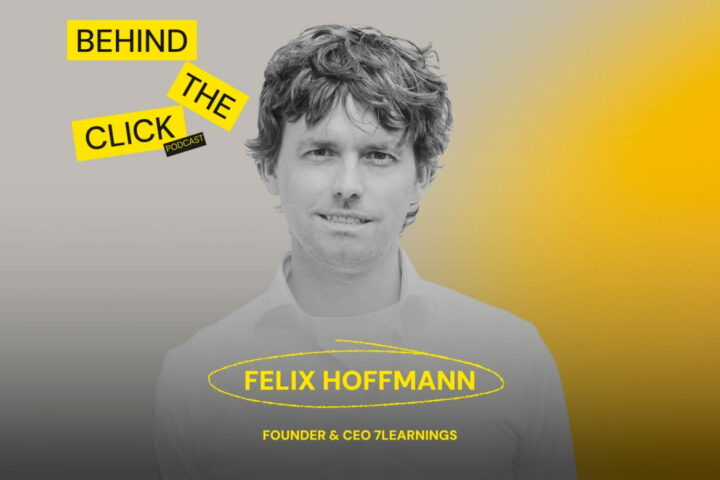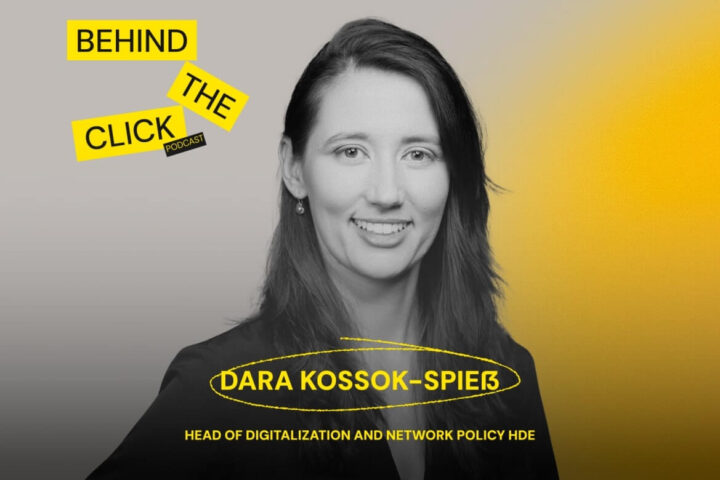“Today the consumer demand for a more personalized product and service” – interview with Christian Möhring (madeone)
Written by
Kinga EdwardsPublished on

We’re happy to present the next interview with one of the E-commerce Berlin Expo 2020 speakers! Christian Möhring, CEO & Founder at madeone, shared his insights about the work at the world’s first company offering Customization as a Service (CaaS).
What are your main responsibilities at madeone?
As CEO I’ll wake up every morning and head into our workspace to bring madeone’s vision to life: We want to change the way people buy products. In order to achieve this ambitious vision, we are building a unique, global platform to bring customization to the many individual people and to help companies to unlock their customization business potential. I’m focused on developing our strategic direction as an organization and on building our future team. As we’re running our own consumer-facing customization business model with helmade.com, I’m involved in the overall operational management, brand marketing as well as the production side of things. Our business model is highly specialized and my professional background wasn’t in producing customized products 5 years ago, so I had to grow in this crucial area of our service.
You describe madeone as “We are world’s first company offering Customization as a Service (CaaS)”. What makes madeone really unique, what really differs you from others?
With madeone we are making use of our ability to enable profitable and scalable customization business models. We are no agency and no consulting firm. We are offering our clients not only access to a unique 3D web configurator technology but positioning ourselves as a B2B or potentially B2C fulfilment partner to handle your end-to-end customization business. Our modular service portfolio goes from the initial strategy and consulting phase, analyzing the business potential of customized products to the final market launch. We’re bringing in all our experiences to set up the best possible solution for our customers, grounded in operating our own customization business with helmade.com. The madeone service is fueled and further developed by our own experiences with digital business models from various industries like the motorcycle and automotive industry, sporting goods, fashion, home furnishing and glassware. We are fully embracing one of the key enablers for building a successful customization business: the production process. Our aim is to do this without stepping into the manufacturing process and risking any efficiency.
We’ve seen that you worked for Nike and Ikea – wow! Which of your previous professional experiences do you find helpful in your current position, and in what way?
Actually the madeone concept was born out of my own professional experiences with mass customization at the Global Sports Brand Nike. As the Digital Commerce responsible at Nike in Germany and then Europe I truly fell in love with Nike’s mass customization business model named NIKEiD at that time. To me and everyone in my team, the future of products and services is custom. I had the chance to market and establish one of the most successful customization business models in the sporting goods industry. Sometimes people ask me if I’m more a brand or commerce guy. In my role at Nike I had to become both. I’m still so thankful for all these experiences working for the swoosh. Likewise, I’m more than happy that I could gather experiences as the Head of Digital at IKEA, the Swedish life at home expert and the world’s largest multichannel retailer for home furnishing products. During this time I got exposed to one of the most valuable retail brands and highly efficient supply chains which still helps me to keep a broad perspective on the end-to-end process. Besides these two larger corporations I’m in the same way thankful that I had the opportunity, from 2006-2009, to build my first e-commerce business including an own direct-to-consumer channel for the German SME and glassware brand Leonardo.
What is the most challenging in your job at the moment?
Speed. It’s all about speed when you are building and establishing an entirely new business model. To grow all needed resources and capabilities in order to achieve our vision is a challenge day-by-day.
What do you think brands can do for increasing profitability?
E-commerce business is getting less and less profitable, challenged by big players and marketplaces like Amazon. It is way harder to come up with a profitable e-commerce business model due to an entirely changed customer expectation. Newly launched products cannot be market to a recommended retail price in many industries. Running a successful e-commerce business is cost-intensive and a return on investment is coming in late in the game, if it ever does. Especially for companies, who have already established a solid online business, growth potential areas are rare. Growing your e-commerce business indisputable means investing in the overall customer experience and performance-driven marketing. Investment drives growth but to what extend does this make sense for an organization? In many cases, the e-commerce business is not the most profitable sales channel. Based on my experiences, adding a mass customization business dimension can without any doubt represent the most profitable part of your e-commerce business.
Your presentation is titled “The truth behind mass customization – Unlock customization business to drive profitability”. Can you share some insights on that topic?
Over the last decades, large brands and companies were not able to unlock the full potential of mass customization. The complexity of customized products, as well as the direct to consumer business challenges, are main barriers. Mass customization has to be considered more than ever before as a relevant growth driver for many established e-commerce business models. A key to success is to take-out complexity through-out the end to end process. There are some good reasons to think about adding a customization dimension to your business. During my presentation I will share my own experiences with enabling customization business working for large corporations as Nike and Ikea, SMEs and my company madeone, focussed on ‘Customization as a Service‘.
In your opinion, how will customization change the e-commerce industry in the next few years? How to find a golden mean between automation and personalization?
Today the consumer demand for a more personalized product and service experience is higher than ever before but most organizations are not able to give people what they want (or what they don’t know they want yet). If you look at the developments over the last years within digital marketing, or marketing in general, you can clearly see where we’re heading towards. McKinsey describes ‘digital personalization at scale’ as ‘the holy grail of marketing’. It’s true but in my perspective, this is only halfway towards the future of e-commerce. Think about it, the customer decision happens fast, and we’re so close to offering him a highly personalized message, on target, on point, when it comes to the communication of a product or service. Technology has played a crucial role in how we are able to customize our marketing efforts. The truth is that the products and services we’re offering to customers are still not customized at all.
How do you think that the industry of e-commerce will look like in 10 years?
There’s no glorious future for concepts like Amazon (as they are operated today). The most successful e-commerce business models will be build on the ability to offer an individual product to an individual customer. Smart product recommendations and supporting digital service experiences in e-commerce won’t be enough in 10 years from now. It will all be about individual people in individual situations demanding for the best possible product or service experience. One driver of this movement will be technology, like better ways to visualize products in 3D or the digitalization of the entire supply chain. I can see the opportunities within mass customization becoming the new standard in e-commerce, especially for brands.
Thanks for your insights, Christian!
Hungry for more e-commerce tips?


